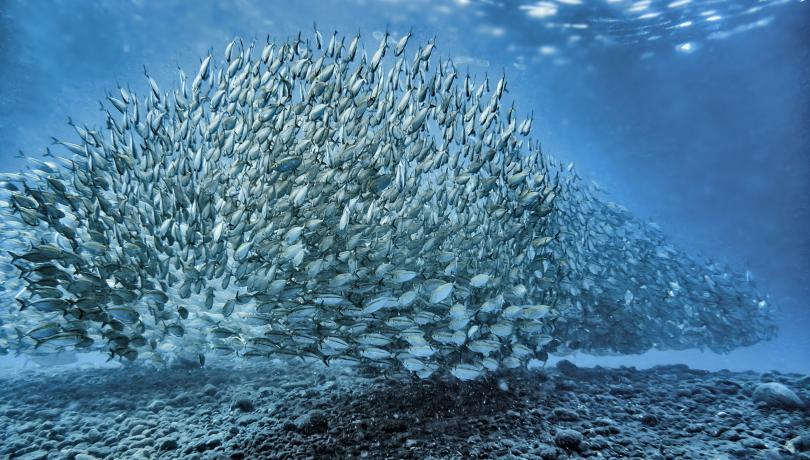Reducing uncertainty in how marine ecosystems respond to climate change will support more effective adaptation planning, a new ecological modelling study in which the ICM has participated has found.

Climate change caused by humans poses a major threat to marine ecosystems, and its effects are expected to lead to increased mortality, reduced calcification, and changes in species distribution, interactions, abundance and biomass. Furthermore, stressors such as overfishing are jeopardizing the benefits that the ocean provides to society, and could compromise ongoing marine conservation efforts.
According to a new ecological modelling study in which the Institut de Ciències del Mar (ICM) of Barcelona has participated, the improvement of climate models has led to a reduction in uncertainty about the response of marine ecosystems to climate change, which has made it possible to predict less hopeful futures for the species that form part of these ecosystems. However, the authors assure that there is one good thing in all this, which is that the reduction of this uncertainty will contribute to more effective adaptation planning.
"Projections of climate change impacts on marine ecosystems reveal long-term declines in global marine animal biomass, and show that the impacts on fisheries are unevenly distributed”, explains Camilla Novaglio, a researcher at the Institute for Marine and Antarctic Studies (IMAS) and the Center for Marine Socioecology (CMS), as well as one of the authors of this study published this week in the journal Nature Climate Change.
"Our simulations show elevated warming and changes in the availability of nutrients and food will create a more marked decline in animal biomass in the world’s oceans than previously assessed”, adds Novaglio, for whom understanding the risks of climate change for marine ecosystems and the benefits of mitigating them is fundamental.
In this regard, the lead author of the study and holder of the Jarislowsky Chair in Marine Ecosystem Forecasting at Dalhousie University, Derek Tittensor, states that "While our results show worrying trends, we also highlight the importance of better understanding of regional changes, where there remains considerable uncertainty yet there is an urgent need to help support adaptation".
For her part, Marta Coll, ICM researcher and another of the authors of the paper, states that " improving available modeling tools to foster our understanding of global and regional dynamics in marine ecosystems and how they are being impacted and will be impacted by climate change is crucial to develop adaptive socio-ecological systems”.
Better understanding and prediction of impacts
The publication of the work, in which 36 experts from different disciplines have participated, is part of the Fisheries and Marine Ecosystems Model Intercomparison Project (Fish-MIP), which seeks to improve the understanding and prediction of the long-term impacts of climate change on fisheries and marine ecosystems. "In addition, the project aims to provide an evidence base that will help to inform fisheries, climate change, and biodiversity policy", says Professor Julia Blanchard, IMAS researcher, CMS and leader of the international ARC Future Fellow program.
All in all, the study represents a step forward in planning future pathways to sustainability and an important contribution to the Sixth Assessment Report of the Intergovernmental Panel on Climate Change (IPCC AR6), due to be published next year. It also comes just a week before the start of the COP26 climate summit, where world leaders will discuss their commitments to combat climate change.